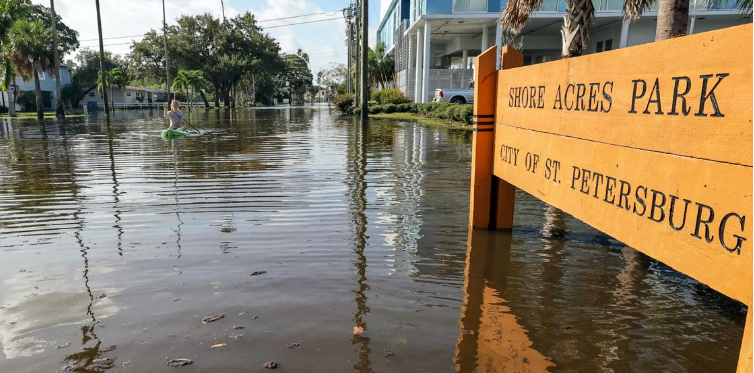New Flood Disclosure Requirements for Pinellas County Property Managers and Landlords
As of October 1, 2025, Pinellas County property managers and landlords must comply with a new flood disclosure requirement designed to improve transparency and tenant protection. Governor Ron DeSantis signed Senate Bill 948 (2025) into law, creating Florida Statute 83.512, which requires landlords to provide a flood disclosure form to prospective tenants before signing a residential lease. Even if a property has never flooded, landlords must still present and have tenants sign the disclosure form. While the law applies statewide, it carries particular significance for Pinellas County, where coastal exposure, low-lying neighborhoods, and aging drainage systems make flood awareness a critical issue for both landlords and tenants.
Why This Law Matters: Lessons from a Flooded Year
Pinellas County residents are no strangers to high tides, heavy rainfall, and flash floods. The severe weather of 2024 underscored how even well-prepared communities remain vulnerable to intense rainfall and storm surge. Across Tampa Bay and the Gulf Coast, neighborhoods faced flooded streets, overwhelmed drainage systems, and property damage that revealed just how important accurate flood information can be for renters and property owners alike.
By strengthening disclosure requirements, lawmakers aim to ensure that Pinellas County tenants understand the potential flood risks before moving in — and that property managers maintain open, honest communication about a property’s flood history.
what Counts as “Flooding”?
The statute defines flooding broadly, covering more than just hurricanes or storm surges. It includes:
- Overflow of inland or tidal waters
- Rapid accumulation or runoff of surface water from heavy rain, rivers, or drainage ditches
- Standing water caused by sustained rainfall or poor drainage
Even recurrent minor flooding must be disclosed. This ensures tenants are aware of both major events and smaller, repeat issues that could affect safety or insurance costs.
What the New Flood Disclosure Law Requires
Under Florida Statute 83.512, landlords must answer three key questions about a rental property’s flood history:
1. Has the property ever flooded?
Landlords must disclose whether they have personal knowledge of flooding that has damaged the dwelling during their ownership.
2. Have any flood insurance claims been filed?
This includes claims made through private insurers or the National Flood Insurance Program (NFIP).
3. Has the owner received government assistance for flood damage?
For example, funds or grants from FEMA or other federal or state agencies.
This disclosure must be presented as a separate, standalone document—not hidden within the lease terms—and provided before or at the time of lease signing for any residential lease of one year or longer.

Building Trust Through Transparency
As Pinellas County continues to grow and adapt to the realities of stronger storms and rising waters, clear communication about flood risks is more than compliance — it’s community protection. Honest disclosure helps tenants make informed decisions, safeguards landlords from liability, and strengthens the overall resilience of local housing.
By embracing transparency, Pinellas County’s property managers and landlords can build trust, protect investments, and contribute to safer, more resilient neighborhoods. In a county shaped by its proximity to the water, openness isn’t just good business — it’s good stewardship.





